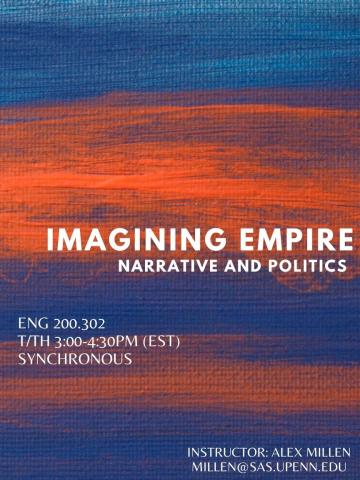Imagining Empire: Narrative and Politics
Course Online: Synchronous Format
What can novels tell us about imperialism? In this class we will be reading a wide range of (mostly very short) novels from the nineteenth century to the present as attempts to grapple more or less explicitly with global relations of profit and plunder. Combining close stylistic analysis with historical and theoretical accounts, we will consider how novels perform a particular kind of thinking about imperialism both in works that narrate the colonial encounter directly and in those that seem at first glance to have nothing to do with imperialism at all.
How does the social texture of imperialism determine ways of thinking about gender, race, and class? How might shifts in novelistic modes of representation and the niceties of literary style—plot, character, genre, point of view, the sound and weight of the sentences themselves—open out to larger questions about the shifting of the world’s gears in the late nineteenth and early twentieth centuries? Possible authors include: Charlotte Brontë, Virginia Woolf, Sam Selvon, Ousmane Sembène, Tayeb Salih, Arundhati Roy.

 Department of English
Department of English
